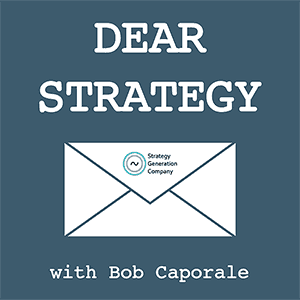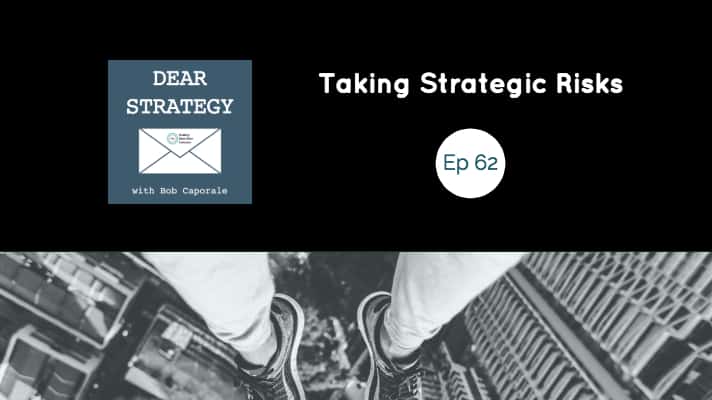Dear Strategy:
“How do you convince management teams to take a risk instead of staying with a strategy they are comfortable with?”
First, I should tell you that I have sat on both sides of this equation. That is – I have sat in the chair of a product manager who had to present strategies to executive leadership teams, and I have also been an executive leader on the receiving end of those same strategies. So I will try to provide as balanced a view as possible in my response.
From the viewpoint of someone who has to present his or her strategy for executive approval, it may seem as though every time you ask for money, you’re going to be met with the proverbial “you’ll just have to do more with less” response. And although these words may appear to originate from a place of pure arrogance, there is often another explanation at hand that will require a bit more introspection to fully decipher.
Sometimes a leader’s lack of support for your plan has something to do with the fact that you just didn’t make a convincing enough argument. Risk is a word that we throw around quite a bit, but when you really break it down, it’s about being willing to give something up for the prospect of getting something more valuable in return. And the only reason that anyone would be willing to do that is if they truly believe they can come out on the winning side of the equation. And the only way that’s going to happen is if you truly believe it also.
Believing in your plan means that you; a) have a firm understanding of your market, industry, and company, and; b) truly feel that your strategy is going to succeed. When one or both of these prerequisites aren’t met, it comes through loud and clear to your audience – and not in a positive way. And although it may seem like a fairly obvious requirement, out of the literally hundreds of strategy presentations that I’ve seen, only a relatively small number of them were delivered by presenters who fully checked both of these boxes.
The easiest way to tell, by the way, is to simply ask the presenters if they would actually invest in their own plans if they could. I mean really invest – as in, risk their own hard-earned cash. Think about how powerful a question that can be. And then think back to how you would have honestly answered that question for all the strategies you’ve developed throughout your career. That’s the main problem we face. It’s not about convincing management; it’s about convincing ourselves.
Of course, I don’t mean to imply that every plan you believe in will also be automatically believed in by your company. There are plenty of risk-averse organizations out there. And if your appetite for risk is far greater than that of your company, then you may just want to start looking for another place to work. But before we jump to that conclusion, I think it would be far more productive to address the problem that I believe is actually more common. And that is – employees asking their companies to take risks that they themselves would never take. Try playing with that formula first and see if it helps to move the needle a little bit.
And if you need a pithy little catchphrase to help you remember, try this one on for size:
“Instead of trying to push people out of their comfort zones; try shifting them into yours.”
And, yes, you can quote me on that. Although I’m not sure anybody ever has!
Listen to the podcast episode
Dear Strategy: Episode 062

###
Are you interested in strategy workshops for your product, marketing, or business managers? If so, please be sure to visit Strategy Generation Company by clicking the link below:
 Bob Caporale is the founder of Strategy Generation Company, the author of Creative Strategy Generation and the host of the Dear Strategy podcast. You can learn more about his work by visiting bobcaporale.com.
Bob Caporale is the founder of Strategy Generation Company, the author of Creative Strategy Generation and the host of the Dear Strategy podcast. You can learn more about his work by visiting bobcaporale.com.







